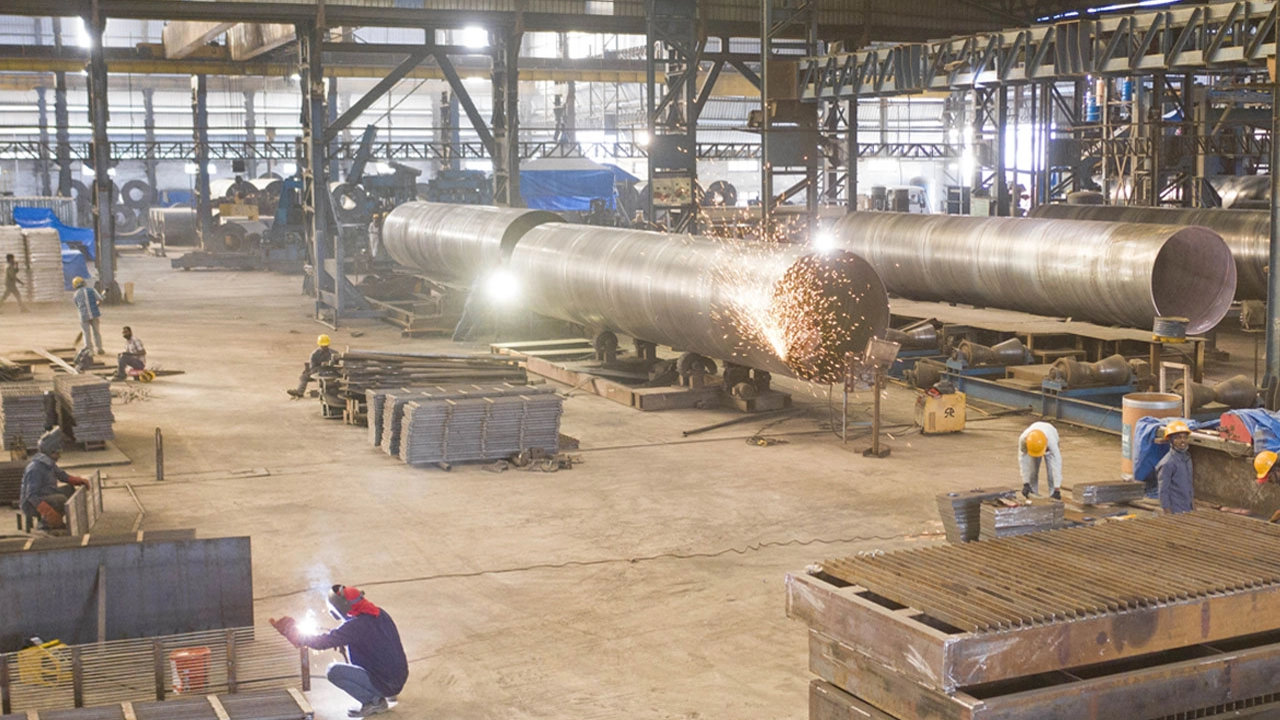
MFGIL is recognized as a manufacturer of Glass Fibre Reinforced Polyester (GRP) pipes on continuous mandrel process, representing state-of-the-art GRP & GRE pipe production technology. The unit also manufactures Glass Reinforced Epoxy (GRE) pipes. As an EPC contractor, we are involved in the laying, jointing, testing, and commissioning processes.
GRP Pipes
MFGIL-GRP is the first plant in South India to manufacture Glass Reinforced Polyester (GRP) pipes, with a considerably large diameter (up to 2600 mm) on CFW machines. This process allows continuous glass fibre reinforcements in the circumferential direction. The production activities are carried out under controlled conditions with continuously advancing Mandrel process.
MFGIL can manufacture GRP pipes from a nominal diameter of 300 mm to 2600 mm, and fittings with different stiffness and pressure classes by complying with national and international standards.
MFGIL has an in-house pipe design, an R&D department, and a complete test facility. The unit has a fully integrated facility for manufacturing and testing GRP pipes, as per quality standards. MFGIL has a production capacity of about 300 km. per year.
GRE Pipes
MFGIL manufactures GRE pipes on helical filament winding process. It is the first plant in South India to manufacture API monogram GRE pipes with diameters ranging from 50 mm to 300 mm diameter. They are extensively used in the oil & gas sector. In this process, the filament is wound at a helix angle, giving more mechanical strength. The complete procedure is controlled through the SCADA system.
MFGIL manufactures GRE pipes of different pressure classes while complying with national and international standards. The GRE pipes are manufactured on a fixed mandrel in lengths ranging from a minimum of 3 meters to a maximum of 9 meters. MFGIL has an in-house pipe design, an R&D department, and a complete test facility.
MFGIL also houses a fully integrated facility for manufacturing and testing GRE pipes as per quality standards. The GRE plant has a production capacity of 150 km, per year.